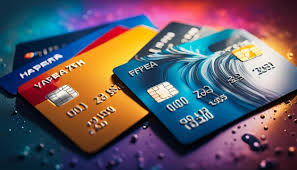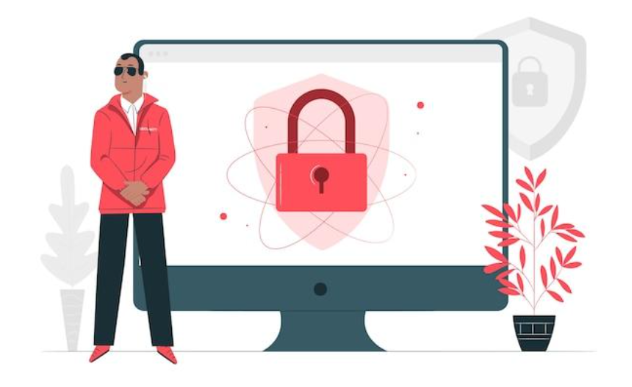Balancing Act: Holistic Financial Planning to Tackle Credit Card Debt
Have you ever wondered how you can break free from the cycle of debt and achieve financial peace? Holistic financial planning could be the game-changer you need.
By looking at your finances as a whole rather than in isolated parts, you can build a sustainable strategy to manage your money better. Stick with us, and you’ll discover practical tips and actionable steps that will not only help you eliminate debt but also pave the way for a secure and prosperous financial future.
Understanding Holistic Financial Planning
Holistic financial planning is all about looking at the big picture. It’s not just about cutting expenses or making more money.
It’s about understanding your financial habits, setting clear goals, and making a plan that fits your life. Think of it as a roadmap that guides you to a debt-free future while considering every aspect of your financial well-being.
Face the Numbers
The first step is always the hardest. Take a deep breath and gather all your credit card statements from the past few months. Find a quiet space where you won’t be interrupted and spread out your documents.
List out each card, including the name of the issuer, the balance owed, the interest rate, and the minimum payment due. This might be scary and overwhelming at first, but it’s a crucial step in taking control of your finances.
You need to know exactly what you’re dealing with to create an effective plan to pay off your debt and improve your financial health. Remember, this is the beginning of your journey to financial freedom.
Create a Budget
Now, let’s talk about budgeting. A budget isn’t about restriction; it’s about freedom. By knowing where your money goes, you can make better choices.
Start with your income. List all your expenses- housing, utilities, groceries, transportation, and, of course, those credit card payments.
See where you can cut back. Maybe it’s fewer coffee shop visits or cooking at home more often. Small changes can add up!
Prioritize Your Debt
Not all debts are the same. Some come with higher interest rates and can be more costly over time. For financial wellness, prioritize paying off the card with the highest interest rate first.
This technique, known as the avalanche method, involves making minimum payments on all debts except the one with the highest interest rate, where you allocate any extra funds. After paying off the highest-interest debt, proceed to the next one. This debt management strategy can save you money over time.
Explore Debt Relief Options
Sometimes, you need a little help. Look into debt relief programs in San Jose. These programs can offer counseling, consolidate your debt, or even negotiate with creditors to lower your interest rates. It’s worth checking out if you feel overwhelmed.
Build an Emergency Fund
It might seem counterintuitive to save while paying off debt, but having an emergency fund is a crucial safety net that can provide financial stability. Start small. Aim for $500, which can cover minor unexpected expenses like car repairs or medical bills.
Once you reach that milestone, work up to having three to six months’ worth of living expenses saved. This larger fund will protect you from significant unexpected costs, such as job loss or major home repairs, that could otherwise throw you off track and force you to incur more debt. Building this fund step-by-step ensures you have a cushion to fall back on, reducing stress and giving you peace of mind.
Increase Your Income
Cutting expenses can only get you so far. Sometimes, you need to bring in more money to make a real difference in your financial situation. Consider starting a side hustle that aligns with your interests or skills, which can provide a steady income stream.
Sell items you no longer need, like old electronics, clothing, or furniture, through online marketplaces or local consignment shops. Offer freelance services, such as writing, graphic design, or consulting, which can be done in your spare time.
Additionally, you can look for a part-time job that fits your schedule, whether it’s at a local business or through gig economy platforms. Every extra dollar can help you pay down your debt faster and achieve your financial goals more.
Stay Motivated and Celebrate Wins
Paying off debt is a marathon, not a sprint. It’s important to stay motivated throughout the journey. To do this, set achievable milestones and celebrate when you reach them.
For example, if you’ve paid off your first credit card, treat yourself to something small, like a nice meal or a new book. These celebrations, no matter how modest, keep you motivated and remind you of your progress.
Additionally, tracking your debt reduction, with a chart or app, can provide a tangible sense of accomplishment. Remember, every step forward, no matter how small, is a step closer to financial freedom.
Learn and Adapt
Life happens, and sometimes your plan needs adjusting. You had an unexpected car repair or a medical bill that threw your finances off track. That’s okay.
Revisit your budget and adjust as needed. Make sure to account for these unforeseen expenses by setting aside a small emergency fund if possible.
The key is to stay flexible and keep your end goal in sight. By doing so, you’ll maintain control over your financial journey and be better prepared for life’s surprises.
Plan for the Future
Once your debt is under control, start thinking about your future financial goals. Do you want to save for a house? Build up retirement savings?
Plan for your children’s education? Holistic financial planning isn’t about getting out of debt; it’s about setting yourself up for long-term success and financial stability. Continue budgeting, saving, and investing.
Establish an emergency fund to cover unexpected expenses, and review your financial plan to make adjustments as needed. By taking these steps, you’ll be better prepared to achieve your financial aspirations and secure a prosperous future.
Embrace Holistic Financial Planning for Lasting Success
Holistic financial planning is your ticket to a debt-free, secure future. By considering every aspect of your financial life and making informed, strategic decisions, you can break free from the cycle of debt and build a prosperous future.
Remember, it’s not about paying off credit cards- it’s about creating a sustainable plan that aligns with your life goals. Keep learning, stay motivated, and embrace the principles of holistic financial planning for lasting success. Together, we can achieve financial freedom.
Want to learn more? Don’t forget to explore our other articles before you leave!
Keep an eye for more news & updates on BiscoverTribune.Com!






